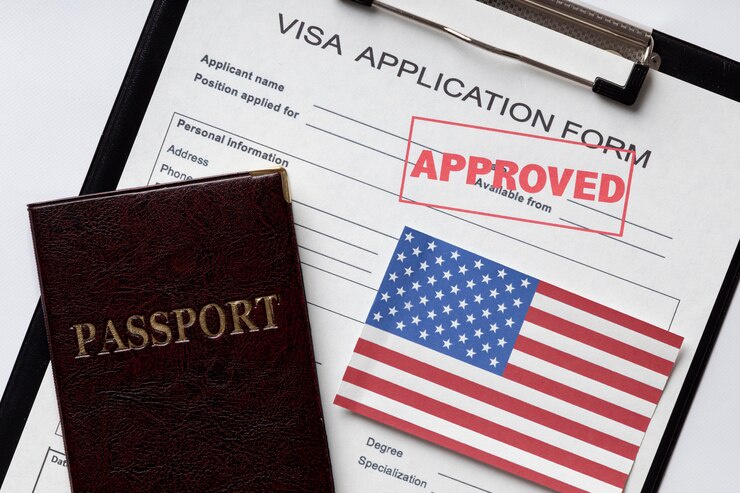In the realm of U.S. immigration, the L1 visa and H1B visa are two prevalent options sought by foreign nationals aspiring to work in the United States. While both serve as pathways to pursue professional opportunities, they differ significantly in terms of eligibility criteria, advantages, and limitations. Let's delve into a comprehensive comparison of the L1 visa versus the H1B visa to better understand their nuances and functionalities.
Understanding L1 Visa
The L1 visa is designed for intra-company transfers, facilitating employees of multinational companies to relocate to the U.S. branch or affiliate. It comprises two subcategories: L1A for managerial or executive roles and L1B for individuals possessing specialized knowledge crucial to the company's operations. To qualify for an L1 visa, the applicant must have been employed by the overseas company for at least one continuous year within the past three years.
Key Features of L1 Visa:
Intra-Company Transfers: Enables employees to shift from an overseas office to a U.S.-based branch or affiliate.
L1A and L1B Classifications: Differentiates between executives/managers (L1A) and individuals with specialized knowledge (L1B).
No Annual Cap: Unlike the H1B visa, there's no numerical cap or lottery system for L1 visas.
Exploring H1B Visa
Contrarily, the H1B visa targets foreign workers hired by U.S. employers for specialized occupations. It caters to individuals with specific expertise or educational qualifications, allowing them to temporarily work in the United States. The H1B visa is subject to an annual cap, leading to a lottery system due to the high demand, which often results in more applicants than available visas.
Key Features of H1B Visa:
Specialized Occupation Requirement: The job must necessitate specialized knowledge or a higher educational degree.
Annual Cap and Lottery: Subject to an annual cap with a lottery system due to the high volume of applications.
Duration and Extensions: Initially granted for three years, extendable to a maximum of six years.
Eligibility Criteria:
L1 Visa: Focuses on intra-company transferees, requiring a minimum one-year employment with the overseas company.
H1B Visa: Open to individuals with specialized skills or occupations, mandating a job offer from a U.S. employer.
Duration and Extensions:
L1 Visa: L1A holders can stay for up to 7 years, while L1B holders can stay for 5 years, with potential extensions.
H1B Visa: Initially granted for 3 years, extendable for another 3 years, reaching a maximum of 6 years.
Dependents:
L1 Visa: Allows for L2 visas for dependents, granting them work authorization.
H1B Visa: Dependents can enter on H4 visas but need a separate application for work authorization.
Conclusion
In essence, the L1 visa and H1B visa serve distinct purposes within the U.S. immigration landscape. The L1 visa caters to intra-company transferees, emphasizing managerial roles or specialized knowledge within multinational corporations. Conversely, the H1B visa focuses on employing individuals with specialized skills or occupations in the United States.
Understanding the disparities between the L1 visa and H1B visa is pivotal for individuals considering work opportunities in the U.S. Each visa category possesses unique criteria, limitations, and advantages that prospective applicants must evaluate before embarking on their immigration journey.
In conclusion, while both visas offer pathways to work in the United States, their eligibility criteria, duration, and focus areas significantly differ, warranting careful consideration before choosing the suitable option based on individual circumstances and career aspirations.
Frequently Asked Questions (FAQs) about L1 Visa and H1B Visa:
1. What are the primary differences between the L1 visa and H1B visa?
The fundamental contrast lies in their purpose: the L1 visa is designed for intra-company transfers within multinational corporations, whereas the H1B visa targets specialized workers employed by U.S. companies.
2. Can L1 visa holders change employers while in the United States?
Yes, L1 visa holders can change employers within the United States, but the new employer must file a new petition for the individual.
3. Is there a minimum salary requirement for H1B visa holders?
Yes, U.S. employers are required to pay H1B visa holders the prevailing wage or higher, ensuring they are compensated fairly for their work in the U.S.
4. Are there any specific educational qualifications needed for an L1 visa or H1B visa?
While there are no specific educational requirements for the L1 visa, the H1B visa generally mandates at least a bachelor's degree or equivalent work experience in a specialized field.
5. Can dependents of L1 and H1B visa holders work in the United States?
Dependents of L1 visa holders (L2 visa holders) are eligible for work authorization, whereas dependents of H1B visa holders (H4 visa holders) need to apply separately for work authorization.
6. Is there a maximum number of L1 visas issued annually?
Unlike the H1B visa, there is no annual cap or lottery system for L1 visas. However, certain conditions and requirements must be met for L1 visa issuance.
7. Can individuals on an L1 or H1B visa apply for permanent residency (Green Card) in the United States?
Yes, both L1 and H1B visa holders can pursue permanent residency, commonly known as a Green Card. However, the process and eligibility criteria differ for each visa type.
8. Are there any restrictions on the types of jobs that L1 and H1B visa holders can take?
L1 visa holders are restricted to working for the sponsoring employer or its affiliate, whereas H1B visa holders can work for the sponsoring employer in the specified occupation for which the visa was approved.
9. What happens if an H1B visa holder loses their job?
If an H1B visa holder loses their job, they are given a grace period of 60 days to find new employment or change their immigration status before potentially facing deportation.
10. Can L1 and H1B visa holders travel outside the United States while their visa is still valid?
Yes, both L1 and H1B visa holders can travel outside the U.S. and re-enter using a valid visa and supporting documentation.


No comments yet